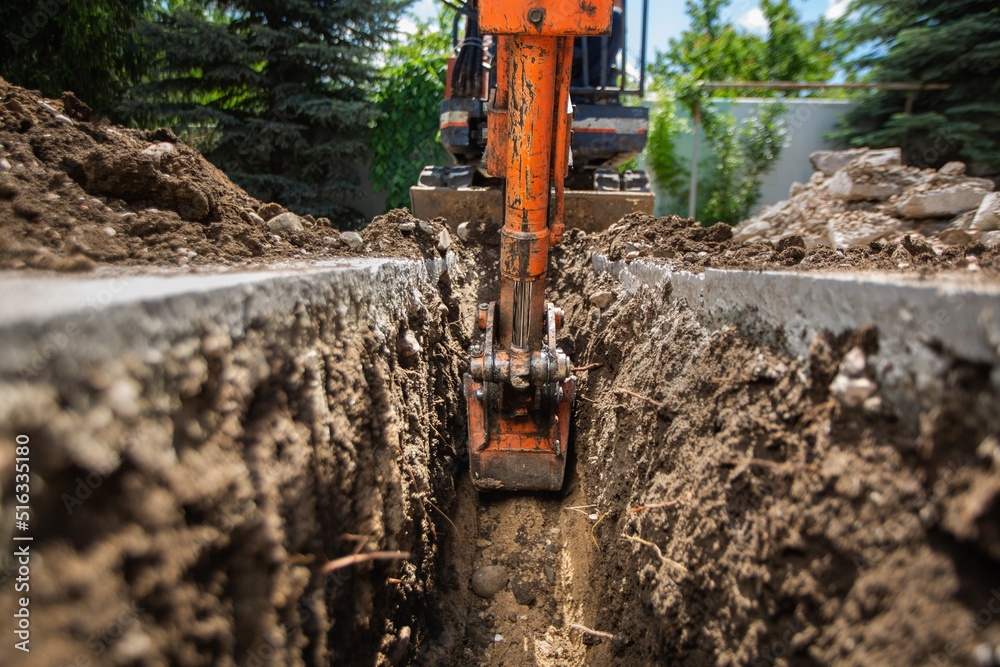Managing an earthmoving project often brings about significant challenges. You might face budget overruns, encounter delays, or select the wrong equipment. These issues can disrupt even the best-laid plans. You must know how to navigate these common pitfalls effectively.
Firstly, understanding the common frustrations in earthmoving projects is crucial. Delays can push your project timelines back, while budget issues can strain your financial resources. Mistakes in equipment selection can also lead to inefficiency and increased costs.
Below are tips to manage these aspects of your project more effectively. You’ll learn strategies to handle the complexities of earthmoving operations smoothly and successfully.
1. Understanding Your Project Scope Clearly
A clear project scope is vital for the success of your earthmoving project. It helps you and your team know exactly what you aim to achieve. You’ll need detailed measurements and specific outcomes outlined from the start.
Having these details in place prevents the need for adjustments mid-project. Such changes can inflate costs and extend your timelines unnecessarily. It’s best to plan thoroughly to avoid these issues.
Ensure you invest time in defining all aspects of your project. It’ll save you time and money and keep your project on track for a successful completion.
2. Selecting The Right Equipment
Choosing the right equipment is crucial for your earthmoving project. You must select machinery that matches the scale and specific needs of your project. Consider the size, capability, and efficiency of each machine.
Large machines may work faster, but they aren’t always the best choice. If your project is on a smaller scale, smaller equipment might be more efficient and cost-effective. It’s important to match the equipment to the job’s requirements to avoid unnecessary expenses.
Additionally, consider professional attachment hire for construction machinery to enhance your equipment’s versatility. Hiring specific attachments for excavators, like breakers or augers, can adapt your main equipment to perform multiple functions, which can be more cost-effective than hiring multiple pieces of machinery.
Focus on selecting machines that offer the best balance of power and efficiency. It’ll ensure your project progresses smoothly and stays within budget.
3. Securing Necessary Permits And Clearances
Before starting your earthmoving project, you must secure all necessary permits and clearances. This step is crucial to ensure your project complies with local laws and regulations. Failure to obtain these documents can lead to significant delays and legal issues.
Common permits include land use approvals, environmental clearances, and safety inspections. These documents ensure your project does not negatively impact the area or breach any legal standards.
Make sure you apply for and receive all required permits before breaking ground. This proactive approach will help you avoid delays and potential fines, keeping your project on schedule and within legal boundaries.
4. Planning For Safety And Compliance
Maintaining a safe worksite is crucial for the success of your earthmoving project. It’s essential to comply with local safety regulations to protect your team and the environment. Develop strategies to uphold these standards consistently.
Regular safety audits are key. They help identify potential hazards before they cause harm. Implement a schedule for these audits to ensure continuous safety oversight.
Additionally, invest in worker safety training programs. These programs equip your team with the knowledge and skills to operate safely and respond to emergencies effectively.
Prioritizing safety and compliance ensures your project proceeds without costly interruptions or accidents.
5. Budgeting Wisely
Creating a realistic budget is fundamental to managing your earthmoving project effectively. Ensure your budget covers all possible expenses to avoid financial surprises. Include costs for equipment rental or purchase, labor, fuel, and other operational expenses.
Don’t overlook the importance of setting aside contingency funds. These funds cover unexpected costs that can arise during the project. Having this safety net ensures you can handle surprises without jeopardizing the project’s financial health.
Budgeting wisely helps you maintain control over your project’s finances, ensuring that you can complete your work without unnecessary financial stress.

6. Regular Maintenance Checks
Implement regular maintenance checks to ensure all machinery operates at peak efficiency. Addressing mechanical issues promptly prevents costly downtime and extends the lifespan of your equipment, keeping your project on schedule and within budget. This practice also enhances safety on site by reducing the risk of equipment failure and accidents, ensuring a smoother operation throughout the project’s duration.
Conclusion
Following these tips ensures a more controlled and successful earthmoving project. Thorough planning and proactive management are key to navigating potential challenges effectively.
Moreover, consider consulting with industry experts for tailored advice that enhances your project’s success. Continuous professional development in project management and construction technology keeps you ahead in the field.
Invest in advanced project management tools as well. These tools improve your ability to track progress and manage resources, ensuring your projects are delivered on time and within budget.

